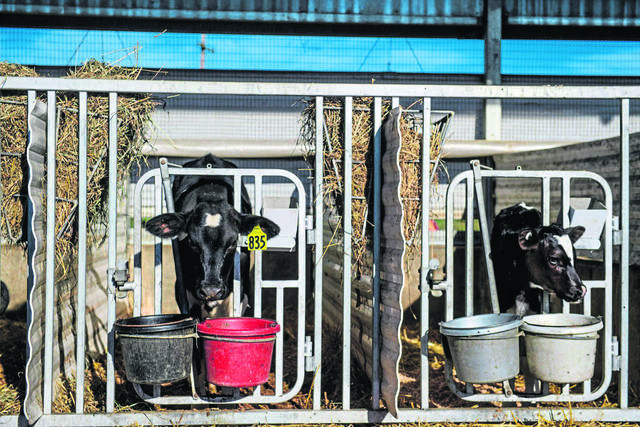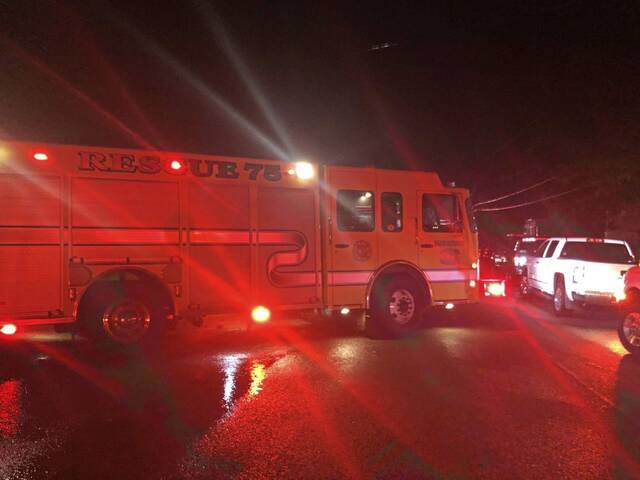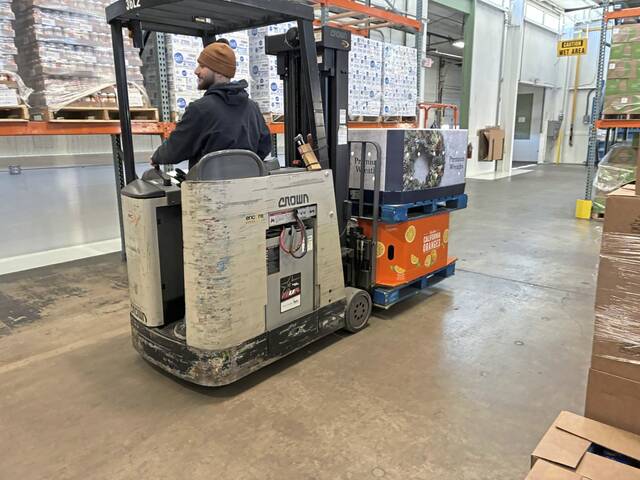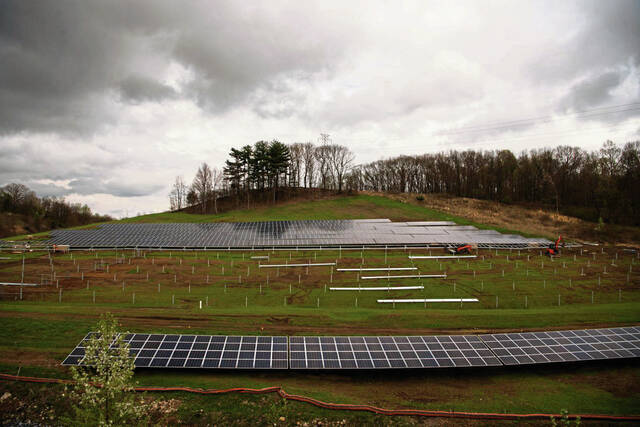Dairy farmers can get at least $1,500 from the state to recover some of their losses if they dumped milk or could not sell products after markets dried up when covid-19 shutdowns closed schools and limited restaurants.
Gov. Tom Wolf on Tuesday announced a $40 million aid package for Pennsylvania dairy farmers, including direct payments for pandemic-related losses.
“It’s very nice to see the governor step up and help the dairy farmer,” said Rick Ebert, a Derry Township dairy farmer and president of the Pennsylvania Farm Bureau, “but $1,500 on a farm is not a whole lot of money … when thousands of gallons of milk is thrown out.”
Pennsylvania earmarked $15 million from its federal CARES Act money for dairy farmers with a documented loss from the pandemic of at least $1,500, plus an additional prorated share of any money that might be left over from the initial allocation, Wolf said. The total grant would not exceed their loss. Sept. 30 is the deadline to apply under the Dairy Indemnity Program.
Dairy farmers who participate in the Pennsylvania Agricultural Surplus System (PASS) program by donating excess dairy products to the state’s charitable food system are eligible for money from a $5 million allocation. Another $5 million went to the PASS program to cover expenses involved in harvesting, processing, packaging and transporting food they donated.
Another $15 million is marked for the State Food Purchase Program, which provides cash grants to counties to buy and distribute food to low-income residents.
“The extra payment to the farmers goes a long way in helping to recover from the devastation of the pandemic” of covid-19, said Jayne Sebright, executive director of the Center for Dairy Excellence, a nonprofit organization that seeks to enhance the dairy industry’s profitability.
An estimated 3% to 5% of milk produced by Pennsylvania farmers in March, April and May was either dumped or displaced, Sebright said.
Some farmers in the region had to dump milk because their dairy processor did not have capacity to store the milk or package it in different containers when the shutdowns occurred, Ebert said.
There were areas where farmers suffered more because their dairy processors did not have the right equipment to quickly convert packaging milk products for school and restaurant use to grocery store sales, Sebright said.
Processors “had to make a shift that sometimes takes years to do, in a matter of days,” Sebright said.
While the governor was able to order schools to close in in mid-March and restaurants to eliminate dine-in service, Ebert said dairy farmers could not shut down their production.
“You just can’t shut a cow down,” said Ebert, who milks 70 cows on his farm.







